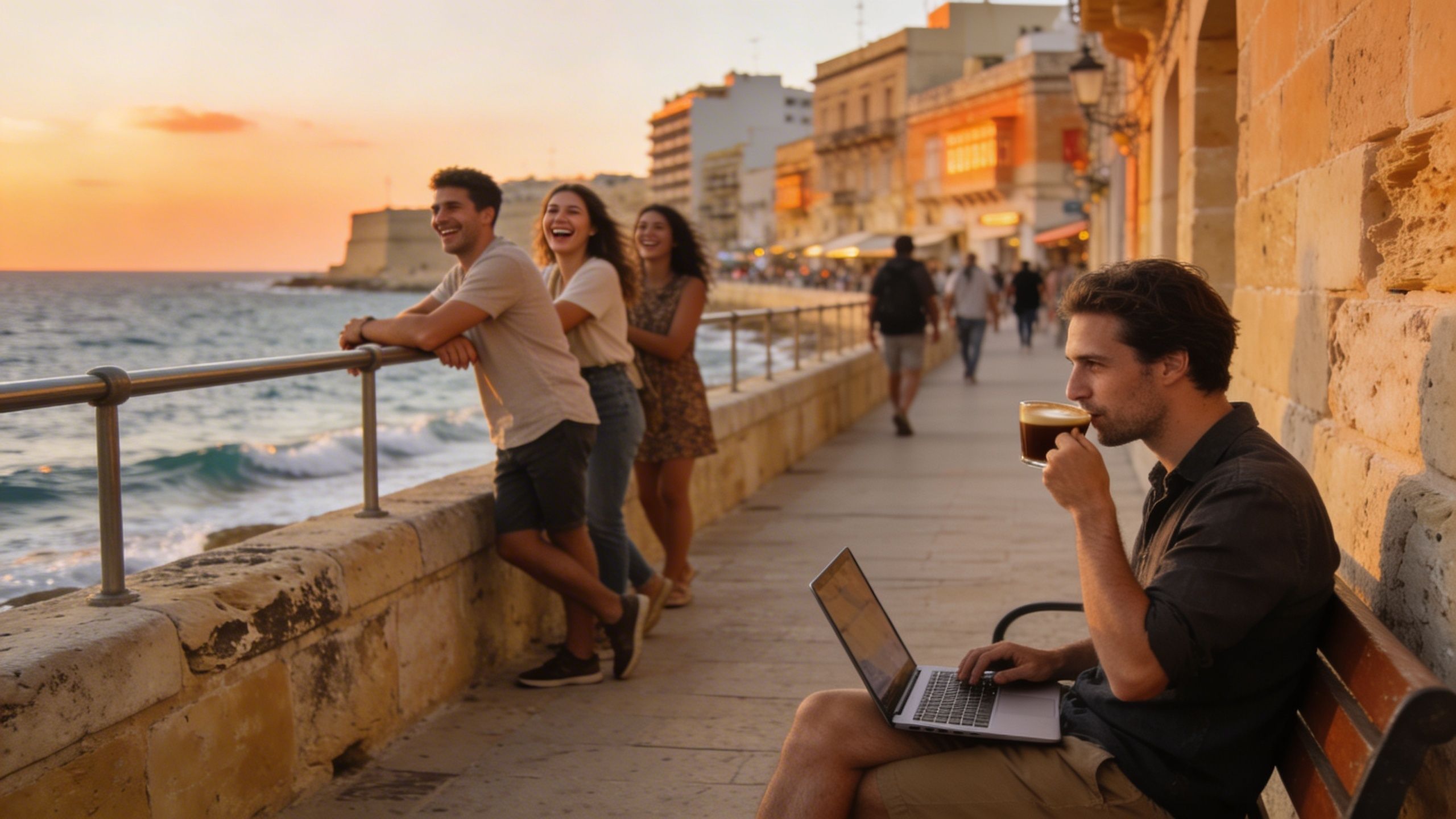Paris vs Provincial France: Where Nomads Actually Thrive
From Paris lanes to provincial terraces: how lifestyle signals (coworking, markets, transport) should shape where nomads buy in France, with market sources.
Imagine sipping espresso at a rue-side table in Le Marais, then hopping on a fast TGV to a sunlit terrace in Bordeaux by evening. France is a patchwork of rhythms: Paris’s manic culture and late-night bistros, the Riviera’s seaside ease, and small towns where market days still set the week’s tempo. For nomads and remote workers the big question isn’t just "Can I live here?" — it’s "Where will I feel most at home, work best, and actually make local friends?" This guide pairs those senses with the practical signals that show where buying makes sense now.
Living the France lifestyle

France smells like fresh bread at 8am and wet cobblestones after rain. Days can be structured around markets — Marché des Enfants Rouges in Paris, Marché des Capucins in Bordeaux — and evenings drift into long dinners with friends. Walkability rules in city centres; bikes and scooters have reshaped short trips. Regional identity is everything: Brittany’s coastlines, Occitanie’s vineyards, and Lyon’s bouchons each serve a different daily happiness. For remote work, this means your neighbourhood decides your rhythm: bright cafés with reliable Wi‑Fi or quiet village terraces with sunrise focus.
Paris neighborhoods that feel like neighbourhoods
Yes, Paris is dense and expensive — but not all arrondissements are the same. Le Marais hums with cafes and galleries; Canal Saint‑Martin attracts the long‑lunch remote crew; and the 11th offers buzzy bars and younger crowds. If you crave cobbled romanticism but need coworking and meetups, the Grands Boulevards/9th and parts of the 10th are surprisingly balanced. Pick streets around Rue de Bretagne or Rue Oberkampf and you’re a short walk from markets, cafes and community events.
Provincial life: Lyon, Bordeaux, and beyond
Regional hubs give you more space and lower prices without losing culture. Lyon’s food scene and coworking density let you work and dine well. Bordeaux mixes riverfront cafés with easy surf weekends at Arcachon. Notaire data shows price shifts vary city to city — some provincial centres even saw rises while others cooled — so lifestyle gains can come with sensible price entry points. Think terrace breakfasts in Croix‑Rousse, weekend hikes near Annecy, and weekday coworking in historic centres.
- Market-day rituals at Marché d'Aligre (Paris), evening apéros along Quai des Chartrons (Bordeaux), Canal-side coworking at République, Sunday oysters in Arcachon, spring truffle hunts in Périgord, summer festivals in Aix‑en‑Provence
Making the move: practical considerations that match the life

Dreams meet details fast in France. Population and migration trends shape neighbourhood vitality — INSEE reports France’s population growth is now driven by migration rather than births — and that influences rental markets and services in many towns. Before you fall for a sunlit terrace, check whether the area’s infrastructure supports remote work: fibre availability, train connections, and a nearby coworking scene.
Property types & what they mean for nomads
Apartments in city centres give you walkability and instant social life but often less outdoor space. Townhouses or village houses deliver gardens and quiet but expect slower internet or longer commutes. New builds come with modern insulation and easier administrative warranties; older stone properties offer character and higher renovation needs. Think: small flat near Canal Saint‑Martin for co‑working meetups, or a renovated village house in Dordogne if you crave slow weekends and guest rental income.
Working with local experts who understand life, not just listings
Agencies and notaires in France are your translators — culturally and legally. Good local agents point to streets where morning coffee crowds overlap with strong Wi‑Fi and coworking spots. Notaires and agents help with title checks, servitudes, and energy diagnostics; but the best ones also introduce you to the boulangerie owner and local meetup groups. Ask agencies about past clients who are remote workers, and request references about internet quality and commute times.
- 1) Inspect fibre and 4G coverage before making offers. 2) Compare apartment associations (copropriété) rules — short‑term rental bans are common in tourist towns. 3) Check DPE energy rating — increasing rental regs reward efficient homes. 4) Ask agents for commute times by bicycle and public transit, not just distance. 5) Find a notaire early to flag rights of way or inherited liens.
Insider knowledge: what expats wish they’d known
Expats often underestimate how seasonal life can be. Coastal towns fill with tourists in summer and quiet down radically off‑season — that’s great if you crave solitude but can feel isolating if your social life depends on transient crowds. Coworking growth in regional cities means you don’t need Paris for community; Bordeaux, Lyon and Marseille now host stronger freelance networks. Finally, locals value small courtesies — learn the quick hello in French and you’ll have friendlier tradespeople and neighbours.
Cultural integration and everyday life
Show up at the market with reusable bags, learn to say "bonjour Monsieur/Madame," and remember that building communities form around regular rituals — market stalls, boulangeries, yoga classes. Schools and community centres are where long‑term neighbours meet; drop into local events and language exchanges. You’ll build routines quicker if you match local rhythms rather than fight them.
Long-term lifestyle: resale, rental and seasonality
Some towns have rebounded faster than others — Notaire analyses show heterogenous price movement across cities. If you plan to rent while gone, check local regulations: many coastal and central districts enforce strict short‑term rental rules. If you want capital growth, prioritise connectivity (TGV access), local job markets, and university towns that sustain year‑round demand.
- Pick areas with A) TGV or strong rail links, B) growing coworking scenes, C) reasonable DPE energy scores, D) local services (market, clinic, school), E) active expat meetups
France is more than a place to buy — it’s a set of daily choices that shape whether you’ll feel settled. Start by imagining a weekday (coffee, short commute, coworking) and a weekend (market, hike or beach). Then test that vision: spend a week living like a local, check the internet speed at 9am and 2pm, and talk to neighbours at the bakery. When you’re ready, use an agent who can show homes that match those lived experiences and a notaire who protects them.
British expat who moved from Manchester to Mallorca in 2017. Specializes in market analysis and helping fellow Brit navigate local regulations.


